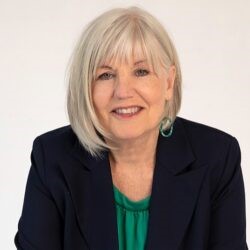Steps for a Successful Career Transition

Career Transition
There is no doubt that deciding that you want to take a different career path at any age can be daunting and particularly if you are in the mature age bracket. If you are like me when I want to know about a topic, I go straight to google and can get completely lost down the rabbit hole and end up confused! There are thousands of articles on google about how to make a career transition or a complete career change. Many of them make a differentiation between career transition and career change with different interpretations. Most clients I speak with see them as interchangeable, so for the purpose of this article, I will talk about the topic holistically.

How does career transition work in real life?
I thought before we look at the steps for career transition, it would be helpful for you to read a Q&A session with one of my clients to see how she navigated her employment future. In this session, we discussed the steps she took along the way, what challenges she faced, plus what valuable advice she has for others, based on her experience.
I first met Natasa Gadzuric in 2015 when her organisation was restructured, and they hired me to run an Outplacement Program for her and other employees who were made redundant. During our program, Natasa raised the possibility of starting her own business and we explored this plus the option of finding a new job in another company.
Read on to see what Natasa had to say about her career, her transferable skills, and how she took advantage of all the opportunities that came her way.
Q1. Can you give us a summary of your career before you made a complete career change?
A1. I was studying a Bachelor of Civil Engineering at The University of Sydney and after completing work experience in construction, was confident that this would be where my career would progress following graduation. While in the process of applying for the only construction company that I wanted to work for at the time and being unsuccessful, I ended up attending a conference and meeting one of the Principals at Evans & Peck.
This informal discussion led to a follow-up meeting and an offer to join them as a graduate. After three years of working for them in the infrastructure/project advisory space, I decided that I needed more ‘hands-on’ experience in construction to build my credibility as a consultant in the industry. This led to my next role as a Planning Engineer on the Cross City Tunnel project in Sydney and more specifically the Site Engineer role for the Tunnel Control Centre.
It was while working in construction that I really started to realise my passion for the people side of things in business. I was reading management and leadership articles and books that led me to the new field of organisational development, which really caught my interest. Another chance meeting with a senior executive, who saw potential in me, led me to my career change from working as an engineer to being the Organisational Development Officer at Downer EDI Engineering.
Q2. Was a career transition ever part of your career goals?
A2. No, definitely not. When I graduated, I thought I would be an engineer forever. I found though that when I got into the workforce, I was interested and attracted to things other than engineering and more focused on people and development. Looking back, it shouldn’t have been a surprise because I had an interest in psychology and at one point had considered being a teacher, so the components were already there.
After 4 years of being in the workforce, I asked if I could develop a Graduate Program for new grads coming into the business. HR told me to go for it and so I wrote and implemented the program alongside my engineering responsibilities. When I discussed it with my husband, he said if the highlight of your day is running the graduate program, are you in the right profession? That was the first trigger that I might want to do something else.
The second trigger was that I knew I wanted a family at some point. Back then, the long hours were not conducive to any kind of balance between work and home. I wanted to work part-time in a career I enjoyed, so that was the beginning of making a move into something that was a passion that would also fit into my home life.
Q3. How did you navigate the career transition process and what was that like to go through?
A3. I can’t stress enough how important networking has been in my career. When I reflect now, I realise that I haven’t had to apply to a single job ad or deal with recruiters. I have found all my opportunities through networking or approaching organisations with ideas where I believed I could add value.
I moved into a full-time Organisational Development role, that I was able to create for myself, by meeting the CEO of this organisation at a function organised by my previous employer. Although I had left that organisation I kept getting invited to functions and at one of these I sat next to the CEO, and we chatted, and he saw my potential and passion for people. You could say I was in the right place at the right time, but I could have easily missed that opportunity if I hadn’t accepted every invitation.
Q4. Were you ever concerned that the challenges were too difficult or that your transferable skills wouldn’t be enough?
A4. I did have a level of fear when I started in a full time OD role, as my skills and training were in engineering, and I was self-taught in organisational development. I did a lot of reading and extracurricular activities outside engineering and having completed a problem-solving degree, I was quietly confident that I would work it out and would have some help along the way. To my surprise when I arrived on my first day, I discovered that there was no other HR person in what was a sizable organisation.
So, I became the go-to person for everything non-finance. I believe that I was able to become a competent generalist as my engineering degree was all about problem-solving. That gave me confidence in my ability to work things out and I became responsible for learning and development, corporate social responsibility, EEO, HR issues, and marketing and communications. Of course, that meant I was spread too thin and couldn’t do anything really well, but what it gave me was an opportunity to see what I enjoyed the most and wanted to further specialise in. That’s when the final seeds were sown, and I knew that learning and development for me was food for the soul.
At that point, I didn’t know if I was any good in my role because there was nobody more senior than me with the right skills and experience. I asked my manager at the time, who was one of the Executive General Managers in the business, if I could spend some time with his Executive Coach. It was through that process that I got the confidence to know that I was naturally good at my new role and the pieces of the puzzle came together.
Q5. What were the challenges for you at that time?
A5. I backed myself with my transferable skills but not everybody saw that in me. New people who later became my new bosses in the HR space, struggled with how an engineer came into a people and development space. They didn’t see the potential for the company as they only understood the traditional HR route.I realised I needed to break away to somewhere where my skill set and experience would be valued but I never wanted to leave the industry. I knew I needed to work somewhere where I had credibility and where I could deliver and be appreciated, which is very important to me.
This led me to my next role as Regional Learning and Development Manager at Hyder Consulting (now Arcadis), which is an engineering consultancy. At the time they were desperately looking for someone to develop and deliver their project management training.
Q6. What factors do you think have led to your success?
A6. Mentoring! Along the way, I have gathered a variety of mentors. It takes time and effort to develop that network and stay in touch and regularly catch up, but it’s like having a cheerleader who acts as a sounding board and celebrates your successes with you. For instance, in my first role, I knew the door was always open and I could go back if things didn’t work out due to one of the Principals mentoring me. Initially, mentoring happened by osmosis but over time I have made that acknowledgment to those people I consider my mentors and feel incredibly grateful for them.
Also building a network has been incredibly important and has been built over many years. I continuously invest in meeting like-minded people and adding them to my network. Another factor has been my passion for wanting to make a difference. I want to leave things better off and ensure I deliver. A previous manager described me as ‘turning things to gold’ and I feel proud of that.
Q7. What advice would you give to others who are considering a complete career change?
A7. Meet as many people as possible who have gone through a career transition, particularly if they have landed in the area that interests you. I remember in the early days meeting an architect that transitioned into the people space, and I remember saying to myself that if an architect could do this then so can an engineer! I can’t emphasise the importance of networks enough. Don’t sit back and just apply to job ads. Think outside the square. Think about what you have of value to offer to a company and approach them, what is your niche? What combination of skill sets and experiences would be of most value to them?
For instance, if you have worked in mining, safety is a huge issue and if this interests you, you could have a lot to offer in that area to a different industry. My engineering background provided further credibility when continuing to work for organisations in the Engineering, Building and Construction industry, where I just transitioned from being an engineer to supporting the development of engineers. I sometimes call myself the people engineer, as I am still solving problems, but these are now people and culture related.
Q8. Thank you so much for your valuable time Natasa, can you finish off by telling us what you have been up to since we worked together as part of the outplacement program?
A8. Well, thanks to your support Sharon, I was able to start my own business, Sustainable People Solutions (SPS), which is a management consultancy specialising in the areas of people, culture, and change management. I have also since then discovered my purpose, to ‘raise the bar’ on leadership in the Engineering, Building and Construction industry, which I have been able to pursue through the introduction of the SPS Leaders Alliance. This initiative aims to inspire our young professionals about who they can ‘be’ and what they can ‘do’ to create a sustainable industry, where our organisations continue to be profitable but not at the expense of our people and our planet. I feel like I am in my dream role.

Career Transition Process
As you can see from reading this Q&A, Natasa is highly motivated and was able to identify what area she wanted to move into, early on in her career. This is not the same for everybody and it may be hard to see ourselves objectively and have clarity about our end goal. Sometimes all you know is that you have outgrown what you are doing or are just ready for a change. Or, you may have reached a certain stage in your career and life, your priorities have changed, and you are looking for more meaning and purpose.
So, what are the steps you can take to gain clarity and move forward? Firstly, be committed to putting the work in, it can be frustrating and time-consuming. If you have been made redundant your morale may be low or anxiety about securing a new role can overshadow the things you have already achieved.
Take the time to understand what skills and strengths you have and how they have led to success in your career. Reflect and write an account of some of the projects you have worked on that you really enjoyed even if they were challenging. Match up your successes to your strengths and skills so you are clear on what you have to offer. How have you used those skills? What strengths did you use that contributed to your success in a difficult project?

Identifying transferable skills
Identify which of your skills are transferable particularly if you already know the industry or type of role you want to move into. For example, creative problem solving, strategic focus, and teamwork are all good leadership skills, if you are wanting a step up. If you find it difficult to identify skills, look at your resume and your history. Also, if you have a good relationship with a recruiter, ask them for advice. What did they see in you when they put you forward for a role? (regardless of whether you were offered it or not). What have your referees or managers said about you in their feedback?
Approach making your career change as you would a work project. If you are the product, what are your features and benefits, why would anybody want to hire you? Planning will help you to answer these questions and if you approach this as you would a work project, you will feel more in control. The employment market can be challenging at the best of times, and Australia is no exception. Nevertheless, Covid seems to have changed the status quo and moved new hires into the employees’ favour. Employers are having to work harder to retain or hire people, so this could be a good time to follow that passion and find an opportunity that will give you the career path you are searching for.
If you know you want to make a career transition but have no idea of what you want to do or how to do it, consider using an expert. If you decide you need the help of a career coach, here is a link to an article on how to choose the right one for you.
How to Choose a Career Coach That Suits You. Or, give me a call or drop me a line and we can have a chat about how I can help you









